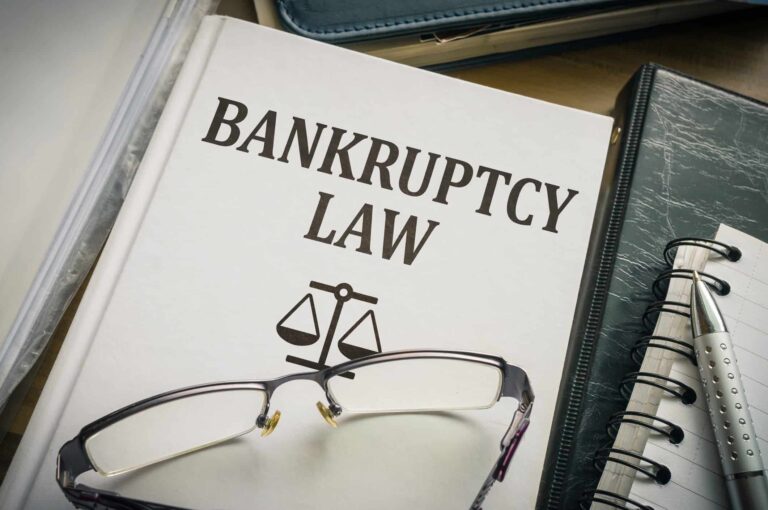How to Pay off Credit Card Debt in 6 Steps
Credit card debt can feel overwhelming, suffocating, and even debilitating. Large sums of credit card debt can keep you from moving forward in life and can stand in the way of milestone moments like purchasing a new car or home. If you struggle with credit card debt, it can help to know that you are not alone. According to the latest data from the Federal Reserve Bank of New York, Americans owe an estimated $925 billion in credit card debt as of the third quarter of 2022. This is a 15% increase from 2021. With the average American carrying an estimated $7,279. It goes without saying that credit card debt is something nearly every consumer can relate to.
If you’re like many Americans who struggle with credit card debt, doubling down on your finances, learning how to pay off credit card debt, and being intentional about your money habits are the best ways to reign in your finances. But just exactly how do you do that? Today, we’ll cover the six best ways to pay down your debt.
If paying off credit card debt has you wondering if bankruptcy might be an option, contact a bankruptcy attorney today and find the financial relief you deserve.
1. Pay More Than The Minimum Amount
The easiest way to get a grip on your credit card debt is by paying more than the minimum payment. The suggested minimum amount of payment offered by a credit card company is designed to help you pay just what you need so that you can manage your debt, all while allowing credit card companies to benefit from the interest your balance carries.
However, if you have a large sum growing on your credit balance, consistently making more than your minimum payment is easily the best way to whittle down the balance over a period of time. Paying the minimum amount not only prolongs the amount of time you’ll be in debt, it also increases the amount you’ll actually pay in interest. By consistently paying more than the minimum amount each month, you’ll notice your debt balance dwindle more quickly.
If you have several credit card balances that you’re carrying, it can be overwhelming to know which balance to start with. Financial guru Dave Ramsey suggests the popular Snowball Method that requires you to tackle your debt from smallest to biggest. This way, you can feel the mental satisfaction of knocking out your debts more quickly, motivating you to continue paying down your debts.
2. Consolidate Debt
If you’re struggling with debt, the last thing you might be thinking about is taking out a new loan to help pay off that debt. Depending on your situation, however, you may be able to secure a lower interest rate on a loan that you can then use to pay off your debt.
If you work with a credit union, it may be a good idea to explore taking out a personal loan or debt consolidation loan and using that loan to pay off your credit card debt. These loans typically have lower interest rates than a traditional bank and can help you manage a high interest rate on your current credit card balance. By moving your credit card balance from an account with a high interest rate to an account with a lower interest rate, you can save quite a bit along the way as you pay back your debt.
3. Tackle One Credit Card At A Time
We’ve briefly mentioned the Snowball Method, but it’s worth mentioning again because of its proven outcomes.
Tackling your debt one balance at a time is one of the best and most effective ways to get a grip on your credit card debt. Start by listing all your credit card debt from smallest to largest, then start with your smallest balance first. Once you’ve paid off that balance, you can move on to your next balance. The momentum you build up by paying off the first balance will give you the motivation you need to stay on your path of paying back your credit card debt.
Making progress charts or using some sort of visual method where you can see your debt payments can also help you tackle your credit card debt one balance at a time.
4. Get On A Budget
Ask any financial expert, and they’ll tell you that they can’t stress enough how important a budget is to personal financial freedom. As the old adage goes, it’s not how much you make but how much you save that determines your wealth. You don’t have to have a high income to be able to gain control of your finances and, yes, even build wealth. All you need to do is build an efficient budget and stay committed to it.
There are many budgeting tools available, but these 5 Best Online Budgeting Tools To Escape Debt are some of the top-rated methods. It’s essential to keep in mind, however, that a well-written budget is only effective if you stick with it and stay on top of it. For some people, it can help to write out a budget and then create separate envelopes where there is tangible cash for allocated items. For example, if you budget $400 a month for groceries, then having $400 cash in an envelope can help you ensure that you are spending only what you have budgeted for that month.
5. Analyze Your Spending Habits
Your spending habits are likely the most significant factor keeping you from being able to manage your debt. When it comes to spending, there are needs, and there are wants. At first glance, you might not feel like you’re spending too much on your needs. But once you have a budget written down that you can analyze, you’ll be able to get a clearer picture of exactly where your money is going. By taking the time to analyze your spending habits, you can make the necessary adjustments so that you spend your money more efficiently.
6. Consider Filing For Bankruptcy
Debt — whether credit card debt, a mortgage, or even business debt — can be overwhelming. In unique cases, moving forward with bankruptcy might be the best option for wiping out credit card debt and starting new. Bankruptcy can eliminate all or part of your debt, and in some cases, you may even be able to pay off specific debts in order to preserve your relationship with creditors.
When considering bankruptcy, you’ll likely come across Chapter 7 and Chapter 13 bankruptcy. The type of bankruptcy you file depends on your unique circumstances.
Chapter 7 Bankruptcy
For individuals who have a limited income and don’t own their home, Chapter 7 bankruptcy (also known as liquidation bankruptcy) might be the best option. This type of bankruptcy requires you to liquidate your property in order to pay off your debt.
Chapter 13 Bankruptcy
Chapter 13 Bankruptcy (or reorganization bankruptcy as it’s commonly referred to) can be a practical solution for individuals who own property. As the name suggests, Chapter 13 bankruptcy allows individuals to reorganize their finances to keep their property. Chapter 13 will also require a court-mandated repayment plan and can span anywhere from 3 to 5 years.
Take Control of Your Finances Today
Perhaps the most important piece of advice to remember is to pay as much as you can every month, and not just the minimum amount. Equally important is creating a budget and staying on track with that budget so that you can gain control of your finances.
Working to pay off debt is a worthwhile goal, but it shouldn’t completely consume your life and happiness. If you feel that your debt is beyond managing alone, filing bankruptcy on credit card debt may be the right option for you. The team at Deluca and Associates is ready to help you explore your options as you move to regain a hold on your finances. Contact our team to speak with an experienced Las Vegas bankruptcy attorney today.
For more information about filing for bankruptcy, contact DeLuca & Associates at (702) 718-0047 for a free consultation.
Sources:
Ramsey Solutions. (2023).
HOUSEHOLD DEBT AND CREDIT REPORT. (2023).
O’Shea, B. (2023). How to Use the Debt Snowball Method to Pay Off Debt.









